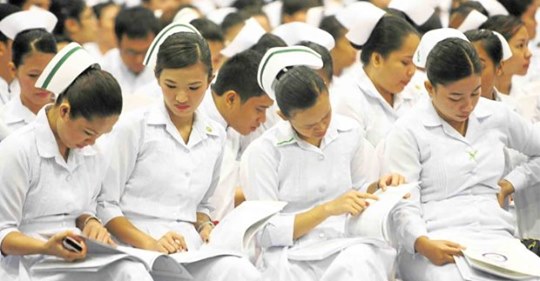CHED-7 issues guidelines for limited face-to-face classes for HEIs’ medical programs

file photo
CEBU CITY, Philippines — The Commission on Higher Education in Central Visayas (CHED-7) has issued the guidelines for the gradual reopening of campuses for limited face-to-face classes among higher education institutions (HEIs)
This was their response to HEIs offering medical programs which are seeking permission to hold limited face-to-face classes for certain classes.
CHED-7 Director Maximo Aljibe said during the Regional Development Council in Central Visayas (RDC-7) first-quarter session, that these HEIs offering medical programs would want to reopen face-to-face classes, especially for their clerkship or internship.
“DOH (Department of Health) and CHED have issued guidelines on the gradual reopening of campuses for those HEIs that have medical or medicine allied programs for limited face-to-face. Our HEIs must be willing to assume the responsibilities based on their capability to comply with health and safety protocols,” said Aljibe.
He added that the guidelines, as of now, would cover the programs Doctorate for Medicine, and Bachelors for Medical Technology, Midwifery, Nursing, Physical Therapy, and Public Health.
At least 42 medical programs are being offered in Cebu, nine in Bohol, 12 in Negros Oriental, and one in Siquijor. The HEIs offering such may be willing to open limited face-to-face classes.
As of now, only three HEIs submitted their application for face-to-face classes centered mostly on clerkship in the hospitals. These are University of Cebu, Southwestern University, and Velez College.
“We need to coordinate with the LGU concerns and the IATF, most especially the DOH. And of course, we need to strictly abide with the standards implemented by the DOH,” said Aljibe.
Submit plan for face-to-face classes
In the guidelines, the applicant HEI must submit their face-to-face plan to the CHED-7 for review and approval.
The application must contain how the HEI will retrofit their facilities to ensure social distancing, one-way movement of the students, disinfection schedule, among others.
Only the students taking face-to-face classes and approved appointments with the HEI can enter the campus and they must be registered by the HEI to Philhealth.
For clerkship in hospitals, the intern can be rotated among non-COVID units, but their transfers must be relayed to the CHED-7 for documentation.
Other programs that are non-medical in nature may conduct flexible learning (FL) wherein students will only go to the HEI with appointments.
CHED-7 warns that if the local government unit (LGU) is reverted back to a higher quarantine classification, all face-to-face classes will be reverted to FL as well.
Finally, CHED-7 prohibits the conduct of face-to-face extracurricular activities.
Once an applicant is approved, CHED-7 will issue an authority to conduct limited face-to-face classes, valid for one academic year or two semesters only.
The role of the LGUs would be to advise the HEI on their conduct of the classes, conduct on-site inspections, designate the health protocol officers of the HEI to join an Adhoc body with CHED-7 that will serve as an investigatory body for complaints, and provide assistance to the HEI on managing crowd traffic control when needed.
Aljibe said that if the limited face-to-face would be implemented for the medical allied programs in the city, the entire community must help keep the students safe.
/dbs
Read: Duterte remains wary of ordering resumption of face-to-face classes –Bong Go
Read: Duterte OKs limited face-to-face classes in medical, allied health programs
Disclaimer: The comments uploaded on this site do not necessarily represent or reflect the views of management and owner of Cebudailynews. We reserve the right to exclude comments that we deem to be inconsistent with our editorial standards.
